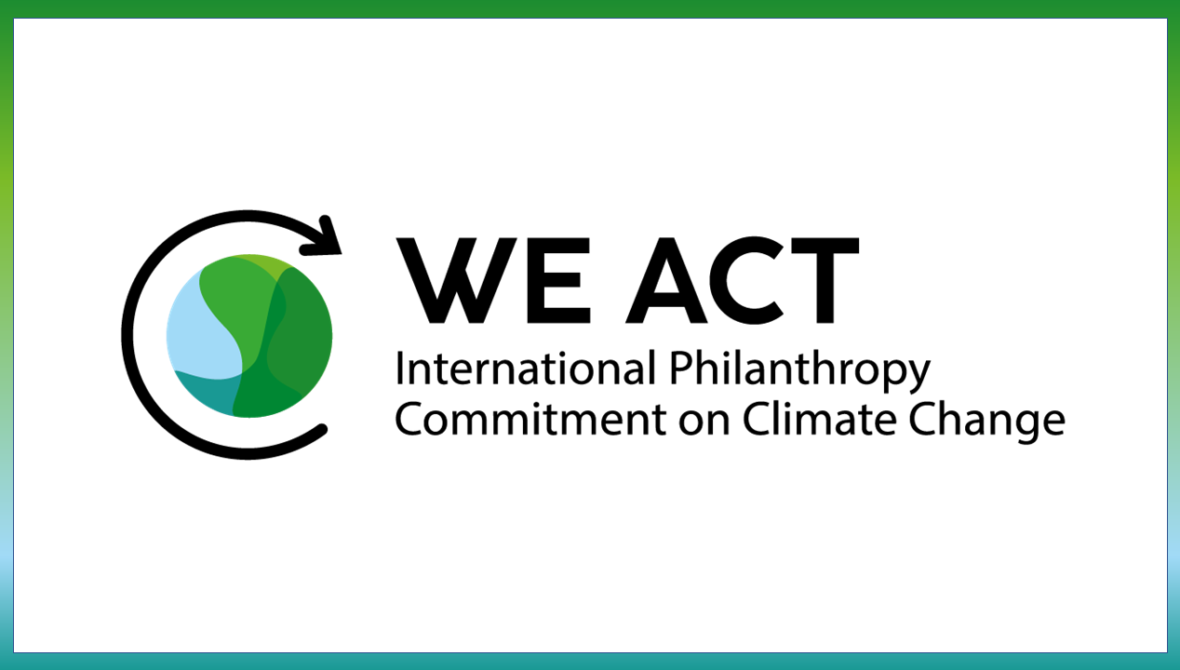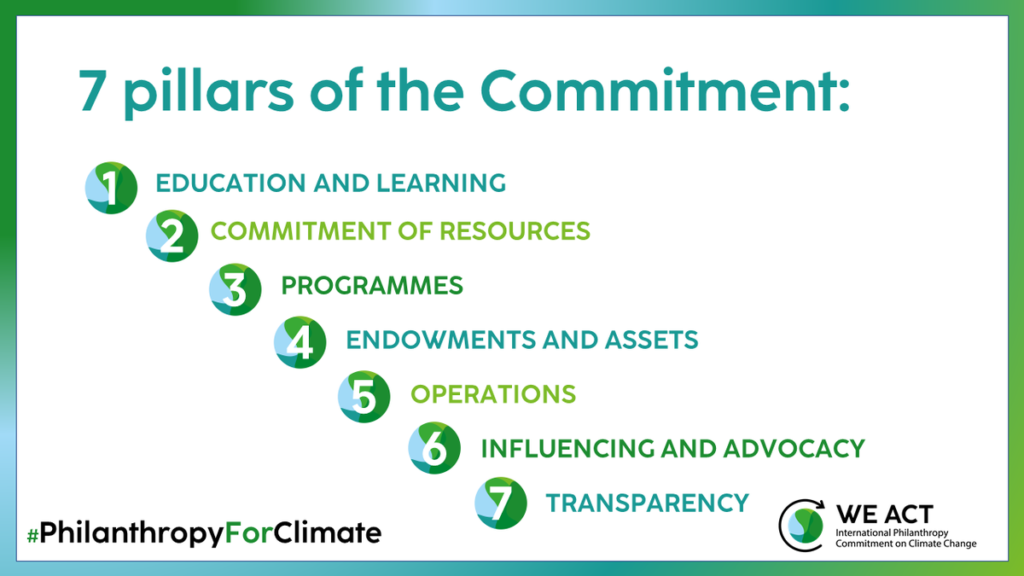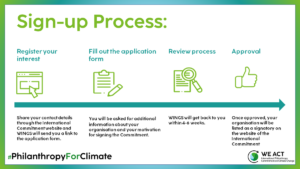A Call to Action on Climate Justice


Nearly a decade ago, I was interviewed by a colleague doing leadership research. One of the questions was, “What are the most pressing leadership issues facing the country?” Despite all that has happened in the last 10 years — a pandemic, ongoing wars, gun violence, to name a few — I would give the same answer today: racial justice and climate change, as separate and interacting issues.
Why are these the two most critical issues? I see them as existential threats — the former to our claim to a moral life, the latter to the life of the planet. As long as some of our fellow humans are subject to being treated as “lesser” in any way, we cannot claim to be moral actors if we don’t actively fight against it.
Philanthropy in particular has an obligation to be sure that the very essence of our work — expressing the love of humanity and taking private action for public good — is relentlessly focused on justice. We’ve increasingly seen foundations take stands on racial equity and pledge to commit their resources to racial justice, either by directly funding advocacy work or by embedding attention to how racism manifests itself in the issue areas they address.
The existential threat of climate change is becoming more obvious even to skeptics. Communities are literally losing ground to floods. Temperature extremes are becoming more frequent. Growing seasons are being altered. Plant and animal species are going extinct. We explored the implications for philanthropy in our 2020 Trends report. Nonprofits will be at the forefront of responding to the impacts of more powerful storms, massive wildfires, and other disasters — not to mention potential shortages of water, food, and critical necessities.
What’s also becoming clearer is that communities of color globally are the most negatively impacted by climate change. An environmental justice movement that started in the late 1980s focused on this intersection of economics and racism and continues to gain momentum. Federal departments such as the Environmental Protection Agency and the Department of Justice now have offices devoted to environmental justice.
Philanthropy has also begun to focus on the intersection of race and climate change. For example, the Climate Justice Alliance is bringing together advocacy organizations in the U.S. to address policy change. The Donors of Color network challenged foundations to take the Climate Funders Justice Pledge.
On a global scale, the International Philanthropy Commitment on Climate Change is a call to all foundations, regardless of their mission, status, or geographic location, to come together and signal their commitment to climate action. The pledge notes that “Countries, communities and organisations without a fair share of global financial resources are the least responsible for emissions, and yet are at greatest risk.” As a member of the committee that helped to formulate this commitment, I encourage you to add your signature.


What does funding climate justice look like? In the U.S., the Kresge Foundation provided one example in their Climate Resilience and Urban Opportunity (CRUO) initiative. Kresge supported work in seventeen low-income, predominantly minority communities across the country to address the impacts of climate change. Bringing the commitment to addressing structural racism together with their long-term focus on the environment was a groundbreaking approach. The Johnson Center partnered with the foundation to develop a teaching case that highlights the key decision points and strategic decisions that had to be made during the course of developing and implementing the initiative. The teaching case is intended to help grantmakers deepen their understanding of the complexity of equity-focused environmental grantmaking efforts.
I started this post with an anecdote about leadership, and I want to end there, too. Climate change and racism are not going to be “solved” by philanthropy. However, philanthropy has the opportunity — and the obligation — to be a leader in bringing communities, government, and business together around the globe to face these existential threats. Our lives depend on it.